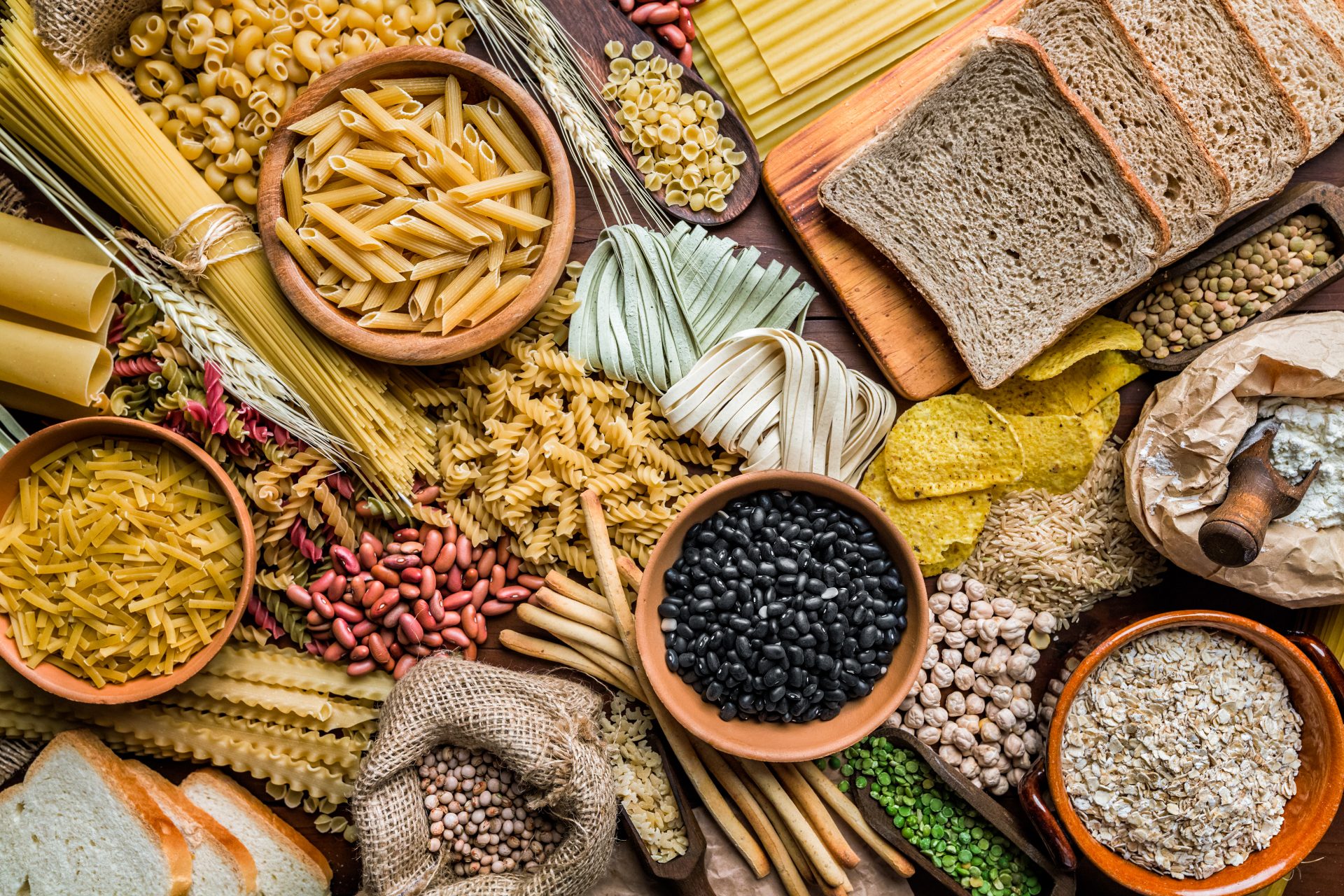‘Carb loading’ is more than a pre-run bowl of pasta – here’s how to do it right
A pre-bed bowl of pasta before an endurance race isn’t the best way to carb load. Here’s how to actually eat right before a marathon.
‘Carb loading’ is a well-known tactic for endurance sports, but it’s often misunderstood. There’s more to it than just eating a bowl of pasta the night before your race.
In a recent Instagram post, nutritionist and medical doctor Hazel Wallace, aka The Food Medic, wrote: “[Carb loading] can help delay fatigue, increase endurance potential and reduce your chances of ‘hitting the wall’ during the latter stages of your marathon.”
If you’re taking on the London marathon this weekend or just a fan of intense exercise, you’ve probably wondered about whether you need to carb load. Here are the answers.
What is carb loading?
Carb loading is simply eating a high-carb diet before a big physical challenge. It’s done because your body – or more specifically, your muscles – can only store set amounts of glycogen. Glycogen is the body’s main source of fuel – so having enough available to use is essential for endurance races. According to the International Society of Sports Nutrition (ISSN):“As glycogen levels decline, the ability of an athlete to maintain exercise intensity and work output also decreases while rates of tissue breakdown increase.”
The thing is, the body is very good at maintaining glycogen levels, so one high-carb meal won’t alter your stores. However, you can “maximize intramuscular glycogen stores” by increasing your carb intake while minimising activity over a few days or weeks, according to the ISSN report.

Who needs to carb load?
Only those who are doing exercise for more than 90 minutes, according to the ISSN. If you’re running a 10k or have a big workout planned, you might benefit from eating some extra carbs, but don’t need to worry about the intricacies of carb loading.
Carb loading is actually quite a technical eating style, and it requires a change to your eating habits. It’s not just about adding an extra serving of rice to your meal, but also tapering other nutrients.
How to carb load
“Two to three days before the race, you should increase your intake of high-carb foods but keep overall calories roughly the same by reducing high-fat foods,” writes Dr Wallace.
What exactly does ‘high carb’ mean? Well, according to the ISSN, high-carb is considered to be anything around 8-12g of carbohydrate per kilogram of body weight per day. By this calculation, a 70kg woman would need at least 500g of carbohydrates.
You may also like
Carbohydrates: why carbs are so important for exercise, recovery and brain function
Strong Women editor and experienced endurance runner Miranda Larbi goes by the method that 90% of her calories pre-race should come from carbs. For a woman eating 2,000 calories, that’s again around 450g of carbs.
Dr Wallace advises that foods such as porridge, rice, potatoes and bread are good options to lean on for a few days before the big event. “Eating little and often can be an easier strategy than eating heavy meals the day before the race so you don’t overburden your stomach.
“As a rule, stick to familiar foods and don’t stray too far from your normal diet. If you are prone to GI problems, then you may wish to limit your intake of fibre during the 48 hours before the race.”
Carb loading the day before a race
The food you eat the day before your race is unsurprisingly crucial, and this is when nutrient timing comes into play. “Your last big meal should be at lunchtime, not the night before the race,” explains Dr Wallace. “This should give your body enough time to digest your food, so you won’t feel bloated on the morning of the race.” For the final dinner, something carby but lighter is best.

Dr Wallace advises simple pasta, noodles, rice or baked potatoes as the main components of your meals, plus bananas and energy bars for snacks.
Carb loading the day of your race
Don’t let your nerves get the best of you – make sure you eat. “Have breakfast three to four hours before the race start time,” advises Dr Wallace. “Eat whatever you would normally have before a long run, nothing new. Drink plenty of fluid to rehydrate after the night’s sleep, then sip as needed.
“If you feel hungry when you arrive at the start, have a carbohydrate-rich snack about 30-60 minutes before the race. This could be a banana or a gel.”
You may also like
Running hack: how to hydrate properly during a marathon to feel full of energy
And remember, post-90 minute endurance running is when the muscles start to struggle. You probably already have a fuel plan, but the general advice is to keep your levels topped up early rather than waiting until you are exhausted. So start hitting the gels or sweets at about 45 minutes in, says Dr Wallace. “Aim for 15-30g of carbs every 30 minutes depending on your pace and how you feel.”
While this is general guidance, there are gender differences that still need to be studied. “Studies have indicated that trained female athletes do not oxidize fat and carbohydrate at the same rates as males and may deplete endogenous glycogen stores to different degrees,” reports the ISSN. For now, high-carb diets seem to work for all athletes, but it is essential that the science world looks into these gender differences.
After the race, it’s all about eating plenty. While the advice for the best recovery is water, sports drinks, carbs and protein, there’s nothing wrong with a pint and a big dish of whatever it is you fancy – unless you have a marathon to run the next day, don’t overthink it.
Images: Getty
Source: Read Full Article
